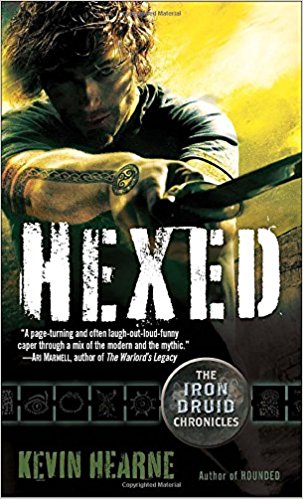 Hexed (The Iron Druid Chronicles, #2) by Kevin Hearne
Hexed (The Iron Druid Chronicles, #2) by Kevin Hearne Formats available: paperback, large print, ebook, audiobook
Series: Iron Druid Chronicles #2
Pages: 296
on June 7th 2011
Purchasing Info: Author's Website, Amazon, Barnes & Noble, Kobo, Bookshop.org
Goodreads
Atticus O’Sullivan, last of the Druids, doesn’t care much for witches. Still, he’s about to make nice with the local coven by signing a mutually beneficial nonaggression treaty—when suddenly the witch population in modern-day Tempe, Arizona, quadruples overnight. And the new girls are not just bad, they’re badasses with a dark history on the German side of World War II.
With a fallen angel feasting on local high school students, a horde of Bacchants blowing in from Vegas with their special brand of deadly decadence, and a dangerously sexy Celtic goddess of fire vying for his attention, Atticus is having trouble scheduling the witch hunt. But aided by his magical sword, his neighbor’s rocket-propelled grenade launcher, and his vampire attorney, Atticus is ready to sweep the town and show the witchy women they picked the wrong Druid to hex.
My Review:
The usual pattern with urban fantasy is that the hero or heroine finds themselves going into darker and darker places, fighting bigger and more powerful evils, as the series continues. But when you open the series by defeating a vengeful god, it’s a bit difficult to get anything bigger or more powerful.
That doesn’t stop things in Hexed from upping the darkness scale, finding Atticus and his allies fighting the witches that seem to have fanned the flames of World War II – with even more flames.
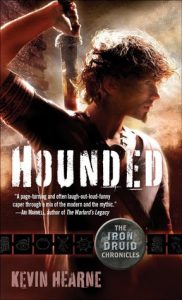 In this second entry in the series, the one and only remaining Druid, now calling himself Atticus O’Sullivan, is dealing with the fallout from events in the previous book, Hounded. And while I think that enough backstory is provided that a person could read Hexed without reading Hounded, I’m not sure why anyone who likes urban fantasy would ever want to.
In this second entry in the series, the one and only remaining Druid, now calling himself Atticus O’Sullivan, is dealing with the fallout from events in the previous book, Hounded. And while I think that enough backstory is provided that a person could read Hexed without reading Hounded, I’m not sure why anyone who likes urban fantasy would ever want to.
Atticus’ epic battle with the Celtic god Angus Og at Tony Cabin in the Superstition Mountains created a whole lot of collateral damage, beginning with his Viking vampire lawyer (say that three times fast) and Leif’s hate-on for Thor. Not that there’s not a long line of people who hate Thor. He’s not a quarter as handsome or reasonable as the movie version.
But in this universe where not only all the pantheons but all the versions of all the pantheons seem to exist, Atticus is not exactly eager to step up to the plate and bat at all the various versions of Thor, one after another.
He has enough problems dealing with the version of Coyote who shows up at his doorstep, expecting Atticus to kill one of the leftover demons from his fight – the one that is messing with Coyote’s people in Tempe. Not that Atticus doesn’t get tricked in the process, because that’s what Coyote does.
In the end, the big bad that Atticus has to take care of in this story is one that he has wanted to beat on for years, decades in fact. There’s a coven of very evil witches that wants to move to Tempe to unseat the local coven. A local coven that is now vulnerable and at reduced strength, after having gotten caught in the middle of Atticus’ fight with Angus Og.
While Atticus doesn’t really trust witches, he is about to sign an alliance with the remainder of the local coven. He may not exactly trust Malina and her coven, but he is convinced that he, they and the werewolf pack are a big part of what’s keeping Tempe a nice place to live.
And he’s been hunting for their mutual enemies (and vice versa) since the dark days of the Holocaust. He wants payback – but so does everyone else. Even with the help of the local witches and that Viking vampire lawyer, the good guys may have bitten off more than they can chew.
They might get chewed, instead. And not in a good way. Not even like one of Oberon’s tennis balls.
Escape Rating A: If you are ever looking for an audiobook with while to while away untold numbers of hours while going from laughs to thrills to giggles to chills and back again, I can’t recommend the Iron Druid series as read by Luke Daniels enough. I listened to most of Hexed while on a treadmill, and it made the miles just fly by.
Admittedly, the people who were next to me probably wondered about the shit-eating grin on my face. The story is told by Atticus O’Sullivan in the first person, in Luke Daniels’ Audible Narrator Hall of Fame voice, and this is a case where the first person perspective really, really works.
Especially since the reader/listener gets to hear the thoughts in Atticus’ head, which are usually even snarkier than whatever comes out of his mouth.
As the second book in the series, Hexed offers readers an even deeper dive into both its main character and the world in which he lives, including much more information about his friends, associates and enemies. Including his nosy neighbor with the rocket launcher in his garage.
A big part of Hexed is Atticus being forced to look back at a past he usually buries – his actions as a maquisard in World War II, helping to smuggle Jews out of occupied France to reach the port in Lisbon where they could leave Europe’s charnel house. His recitation of this particular snippet of his history is absolutely riveting.
This story also marks a turning point for Atticus, as he comes to the realization that he is no longer on the run from Angus Og, as he has been for almost the entire Common Era. He finally figures out that he has put down roots in Tempe that are worth defending, and has made friends that he wants to keep and needs to protect from anyone else who might – make that almost certainly will – come after him in the future.
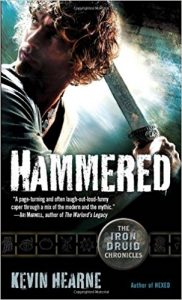 Hexed has absolutely everything that those of us who love urban fantasy read it to find, a terrific, kick ass, thoughtful and snarky hero, a great bunch of sidekicks and irregulars, and a world full of magic that just might be our own.
Hexed has absolutely everything that those of us who love urban fantasy read it to find, a terrific, kick ass, thoughtful and snarky hero, a great bunch of sidekicks and irregulars, and a world full of magic that just might be our own.
I can’t wait to get Hammered, and I probably won’t.

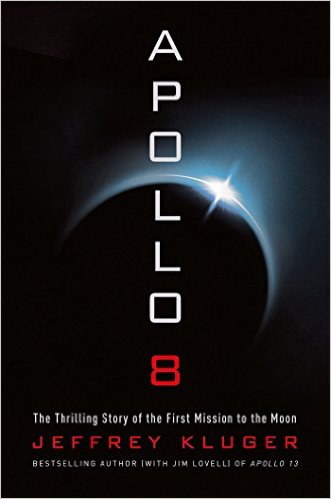 Apollo 8 by
Apollo 8 by 
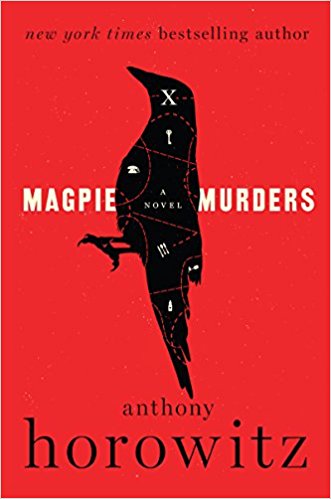 Magpie Murders by
Magpie Murders by 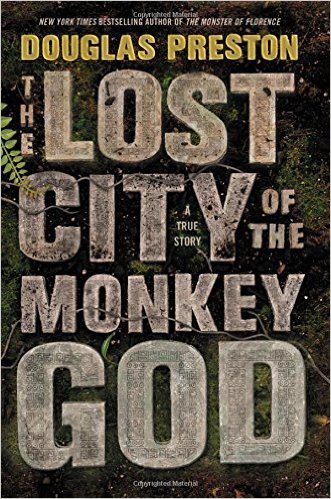 The Lost City of the Monkey God: A True Story by
The Lost City of the Monkey God: A True Story by 
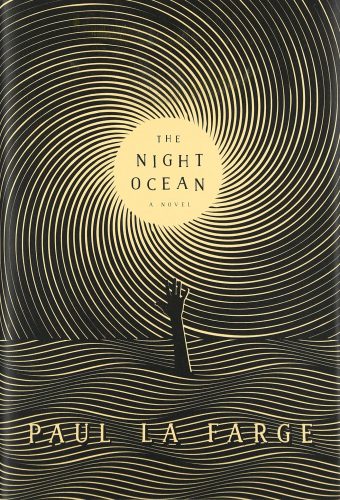 The Night Ocean by
The Night Ocean by  Moonglow by
Moonglow by 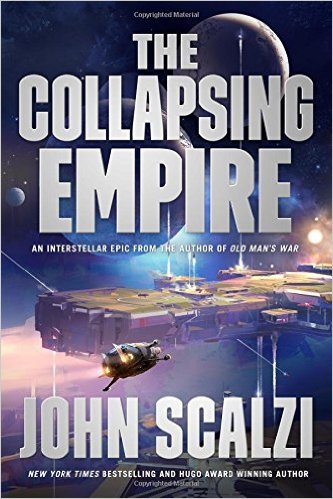 The Collapsing Empire Formats available: hardcover, paperback, ebook, audiobook
The Collapsing Empire Formats available: hardcover, paperback, ebook, audiobook 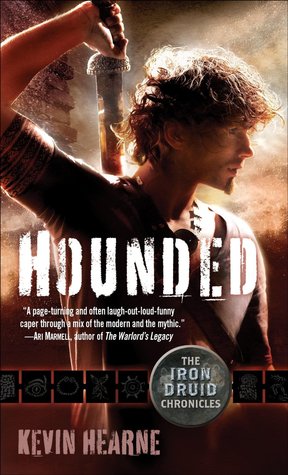 Hounded (The Iron Druid Chronicles, #1) by
Hounded (The Iron Druid Chronicles, #1) by 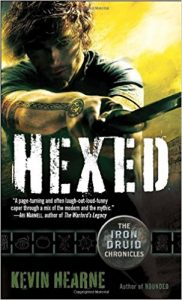 Hexed is up next. Atticus doesn’t trust witches. And there’s a good reason. Again. Fantastic!
Hexed is up next. Atticus doesn’t trust witches. And there’s a good reason. Again. Fantastic! Murder on the Ballarat Train (Miss Fisher's Murder Mystery #3) by
Murder on the Ballarat Train (Miss Fisher's Murder Mystery #3) by  I enjoyed this method of “reading” Phryne’s story just as much as I did reading it. I will, however, make one final note about the audio performance. In any audiobook where a single narrator attempts to voice multiple characters, some characters work better than others. That problem is made more difficult in the case of Phryne, as those of us who have watched the TV show already have a fixed idea of what these characters are supposed to sound like. The narrator of Murder at the Ballarat Train did an excellent job portraying Phryne, and surprisingly a fairly good job of making the male voices sound at least OK. But for some reason my ear kept telling me that Dot’s voice was completely off.
I enjoyed this method of “reading” Phryne’s story just as much as I did reading it. I will, however, make one final note about the audio performance. In any audiobook where a single narrator attempts to voice multiple characters, some characters work better than others. That problem is made more difficult in the case of Phryne, as those of us who have watched the TV show already have a fixed idea of what these characters are supposed to sound like. The narrator of Murder at the Ballarat Train did an excellent job portraying Phryne, and surprisingly a fairly good job of making the male voices sound at least OK. But for some reason my ear kept telling me that Dot’s voice was completely off.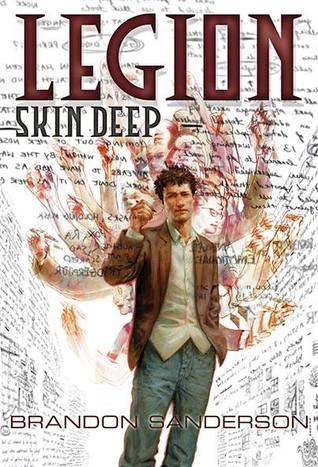 Skin Deep (Legion #2) Formats available: hardcover, ebook, audiobook
Skin Deep (Legion #2) Formats available: hardcover, ebook, audiobook 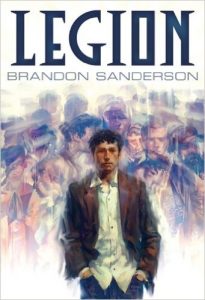 Skin Deep is the sequel to
Skin Deep is the sequel to